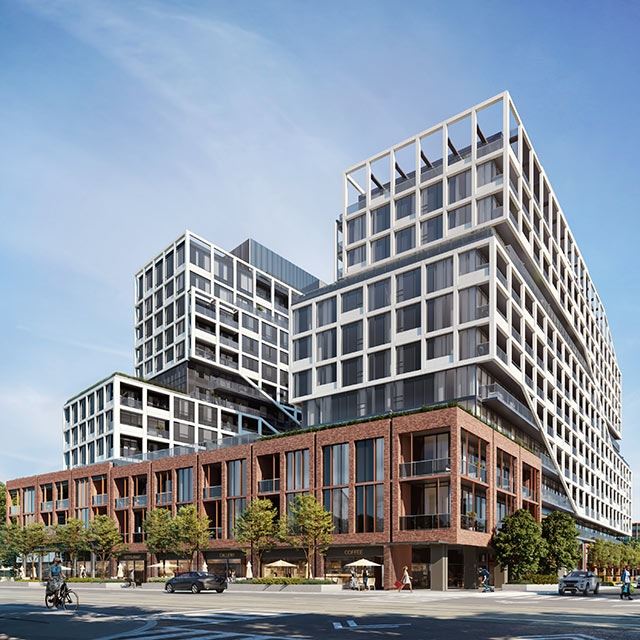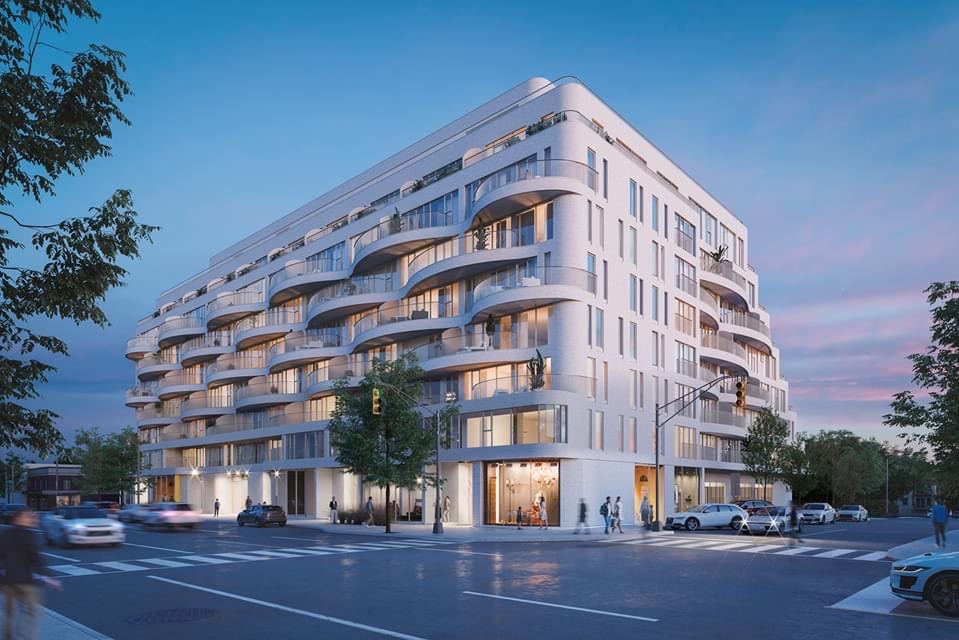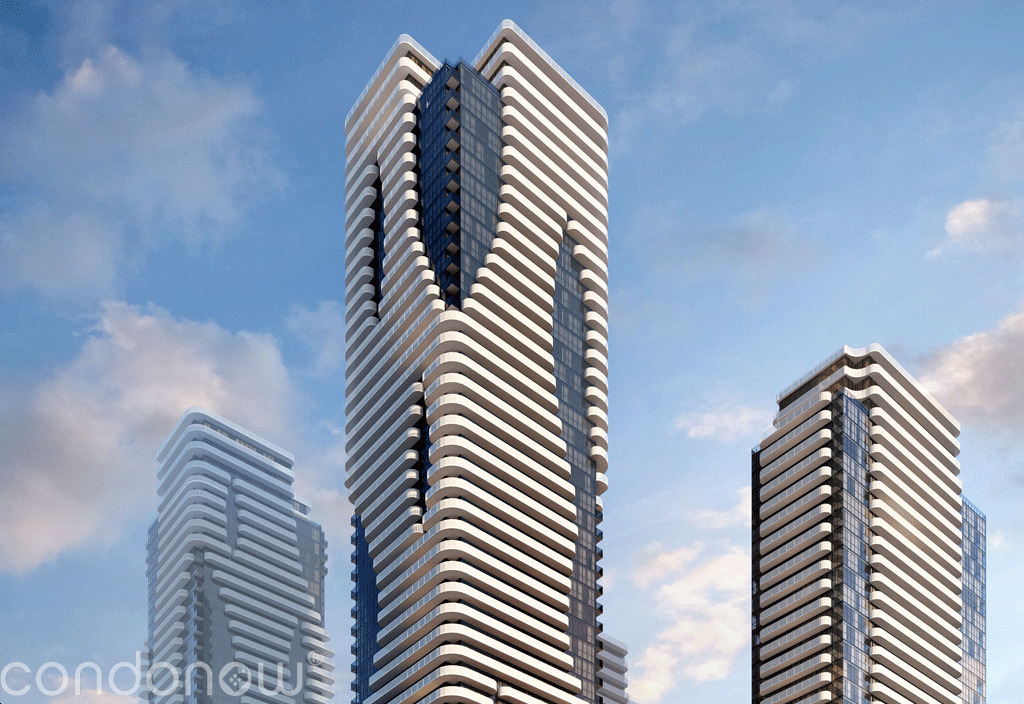Real Estate
Pre-Constructions 101 - Important Things To Know Before you Buy
With over 500 new Pre-Construction projects currently available on the GTA market, it can be very difficult to determine which one is the right fit for you. If you aren’t familiar with Pre-Constructions, we’re here to give you a “quick” run-through of it. Here in this article, we talk about everything you need to know about Pre-Constructions before you purchase one.

Understand The Deposit Structure
While home buyers in the GTA generally provide a deposit of 5% upon signing of the agreement of purchase and sale, pre-construction home builders generally require significantly higher deposits (15-25%) in order to fund the construction project. Although, it might seem like you need a lot of up money upfront , there is usually a deposit structure that outlines the payment schedule broken up over years, from the day you sign until occupancy period. Typically, the first deposit payment is submitted together with the signed agreement which can either be a flat amount or a small percentage of the purchase price. If the first deposit was less than 5% of the purchase price, then usually the next deposit payment is a top up amount to 5% of the purchase price and is typically due within 10 or 30 days. From there, there are various ways the remainder of how the deposit is to be paid to the home builders and it will be outlined in the agreement. For example, an additional 5% at 90 days, 5% at 180 days, 5% 270 days for a total of 20% deposit. In general, you should be prepared to pay the builder a much larger deposit for a pre-construction project.
HST and Pre-Construction Projects
Since 2010, all pre-construction projects, which includes new homes and condos, are in Ontario are subjected to a 13% Harmonized Sales Tax (HST). This is different for home buyers in the resale market who are also end-users. End-users are buyers who are buying for their personal use, not to flip for profit, or to rent out to a tenant.
In an effort to reduce the cost of buying a new home, the government introduced a rebate program to reimburse a portion of the HST. This HST rebate is available to anyone in the province who purchases a new home or condo from a builder, or who hires a builder to construct a new house and are the end-users. When purchasing a new home or condo to live in, or for a family member to live in, the Ontario HST rebate is frequently assigned to the builder upon closing. This rebate is used by the builder to consequently lower the purchase price of the project by the rebate amount. As such, most advertised pre-construction prices assume you are the end-users and qualify for this rebate and factored it into the purchase price. If you’re an investor, there is a similar rebate available (NRRPR) that can only be applied for by the investor after closing and never by the builder.
If you require further information about HST and Pre-Construction projects, you can find that here. That being said, every real estate purchase or investment opportunity is unique in and of itself and so independent legal and accounting advise from a seasoned professional is always recommended.
The Reality of Expected Completion Date
While home builders will provide an expected completion date for the condominium, rarely (if ever) are completed on time. Home builders have the right to delay for all sorts of reasons and for a surprisingly long time. The actual delays and builder penalties (if any) are outlined in the agreement of purchase and sale, but it’s best to add 6 months to 3 years for delays. Typically, the more experienced the developer, the shorter the amount of delays.
Be Prepared For Unexpected Surprises
Home builders have a fair amount of flexibility to make changes to the units and buildings, even after you sign the agreement of purchase and sale. We’ve seen builders add or subtract floors, change layouts and decide that the rooftop pool should now be in the basement. Buyers are protected from any “material changes”, but you might be surprised to find out what is and is not considered “material”. It is important to read the agreement of sales and purchase as well as be prepared to be flexible for potential changes to your pre-construction project.
Assignment Policy
An assignment is when the original Buyer sells the Agreement of Purchase and Sale contract they have with the Home builder to a new Buyer. In legal terms, the original Buyer is known as the Assignor and the new Buyer is the Assignee.
Your Agreement of Purchase and Sale will contain all the information regarding your pre-construction project’s assignment policy. While most builders allow assignments, there is usually an assignment fee that must be paid to the Builder which can vary from $800 to $8000. This fee is typically paid by the Assignor unless otherwise negotiated with the Assignee. Additionally, there may be other requirements as well, the most common being that the Builder has to approve the assignment. For more information about assignment, you can find it here.
Pre-Construction Condo - Interim Occupancy Period
When the condo is built and ready to be moved into, there is a period of time where the Buyer can move into the unit but the Buyer legally does not yet own the unit yet. This is known as the interim occupancy period. In other words, the transfer of title/deed ownership has yet occurred, and no mortgage has been registered at this point. During the interim occupancy period, the Buyer pays the home builder an interim occupancy fee that roughly equals to the interest on the outstanding amount (comparable to a mortgage payment with a 20% down payment), condo fees and taxes. Normally, the interim occupancy period can take anywhere between 3 to 6 months. Typically, the more experienced the developer, the shorter the occupancy period. In addition, the higher up you are in the building, the shorter the occupancy period will be. Regardless of whether you’ve actually moved into the unit or not, you will need to pay the home builder the interim occupancy fee.
Pre-Construction Condo - Registration and Title Transfer
Once a building has passed all the city inspections and gone through all the processes to become a legal entity, condominiums are officially registered with the Land Registry Office. Once it has been registered, the ownership is transferred over from the home builder to the Buyers. At this point, you will no longer have to pay the interim-occupancy fee and a mortgage is registered on the title. This registration period usually happens 4 to 8 months after the start of the interim occupancy period.
Warranty and Pre-Construction Projects
Every new home or new condo in Ontario is covered by the Tarion Warranty program, however the home owner does have to pay an enrolment fee . This is approximately $600-$1500 +13% HST. This coverage lasts up to seven years and is transferrable to subsequent owners of the pre-construction project. If you require further information about Tarion Warranty program and how it works, you can find that here.
Hidden Fees and Costs With Pre-Construction Projects
There are no hidden fees when buying pre-construction condos because all fees must be disclosed in the agreement of purchase and sale. All purchasers have 10 days to review the agreement of purchase and sale and have a lawyer that will review your agreement in detail. With that said, there are a lot of closing costs to consider but not limited to:
- Condo Expenses, Maintenance Fee and Reserve Fund – The condo fees will cover routine maintenance as well as the reserve fund which sets aside money for non-routine repairs and replacements. Costs can vary between each pre-construction project and size of the unit. This is approximately $1,000-$3,000.
- Development Charges/Levies – When a new space is developed, the developers are required to pay the municipality a certain amount for new park space, community resources or public art projects, if applicable. This can include Park Levies, Section 37 Levies, Community Improvement Fees, Public Art Levies and/or Education Levies. As a result, home builders worked into the buyer’s closing costs. These levies can total to approximately $5000-$20,000 and it’s so expensive because the City/Province is broke. Note that Levies are subjected to 13% HST and certain Builders can cap levies.
- Buyer’s Legal Fees – You will need a lawyer needs to review your documents and register your name on title. This is approximately $1,000-$2,500.
- Land Transfer Tax (LTT) – LTT can often be your single biggest expense on closing, especially. LTT varies based on the purchase price as well as the location, as Toronto has a it’s own additional LTT. If you require more information about it, you can find that here.
- Miscellaneous Costs – Utility hookup fees, Tarion Warranty Enrollment Fee, Deposit Administration/Letter Charges, Discharge of Construction Mortgage, Site review by Tarion, Electronic Registration Fee, HST on Appliances. These costs can add up to approximately $3,000 to $5,000.
In reality, there is no set amount or percentage for closing costs for pre-construction projects. It depends on what is written in your agreement of purchase and sale with the home builder and what price you are paying for the unit. That being said, most pre-construction condos in 2019 had total closing costs to be approximately $15-20K for a studio or 1 bedroom condo, and approximately $20-40k for a 2 bedroom or larger condo.
In general, you should always try to get all of your closing costs capped at a maximum amount whenever you can. This is especially true for development charges/levies. As a buyer, it is important to protect yourself and you should always make sure that all development charges/levies are capped at a maximum amount in your agreement of purchase and sale with the builder. It’s also important that you have a good lawyer to review your contract.
Cancellation Policy
After you sign the contract to purchase a pre-construction condo suite, you will have a standard 10-day cooling off period. It’s 10 calendar days, not business days from the time you sign. The 10 days are primarily for 3 things: 1) to have a lawyer review your contract with you if you wish 2) to get a mortgage pre-approval letter and 3) decide whether this is the right pre-construction project for you.
Interested In A Pre-Construction Project?
Here's How You Can Get In Touch With Us
We Are Available 24/7
Feel free to ask us anything.
We are fluent in 廣東話 Cantonese and English
Social Media
Featured Project
MRKT Alexandra Park Set to be Canada’s first all-female development project It is not often that we come across life changing opportunities. …
Festival Condos Set to be Canada’s first all-female development project It is not often that we come across life changing opportunities. Here, …
Festival Condos The destination for an entertainment lifestyle. It is not often that we come across life changing opportunities. Here, we present …
Interested In Learning More?
Real Estate Chattels and Fixtures – What’s Included and What’s Not Sometimes, life throws you a curve ball. Imagine yourself finally getting …
Real Estate Home Improvements – Inexpensive Projects You Can Try For Big Returns It’s always a good idea to spruce up the …
Real Estate Property Easements – Enjoying Your Property To Its Fullest When it comes to real estate, what you don’t know CAN …

Our Promise To You
Fung Finances is a free service. We are not an accountant, financial advisor, law firm, “lawyer referral service,” or a substitute for an accountant, financial advisor, attorney, or law firm. Always do your own due diligence and never blindly listen to a random article on the internet. We do our best to provide financial education with our free videos, articles, tools, and other self-help content. But these are for informational purposes only, they’re not investment advice.
Fung Finances does not and cannot guarantee the accuracy or applicability of any information regarding your individual circumstances. The examples we provide are hypothetical and we encourage you to get advice from a qualified professional regarding specific investment, tax, legal, and financial issues. Previous market performance does not guarantee future performance.
We want everyone to be able to make educated financial decisions. We do not feature every company or financial product available. However, we’re proud of the financial education and guidance that we provide at no charge.
We’re paid by our brand partners and advertisers. This may influence which products we mention, review, and where they appear on our site. But it does not affect our recommendations or advice.






